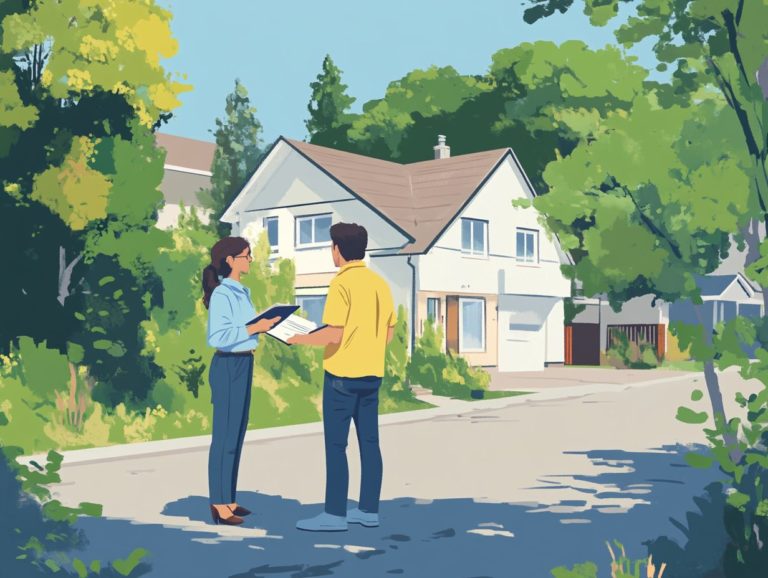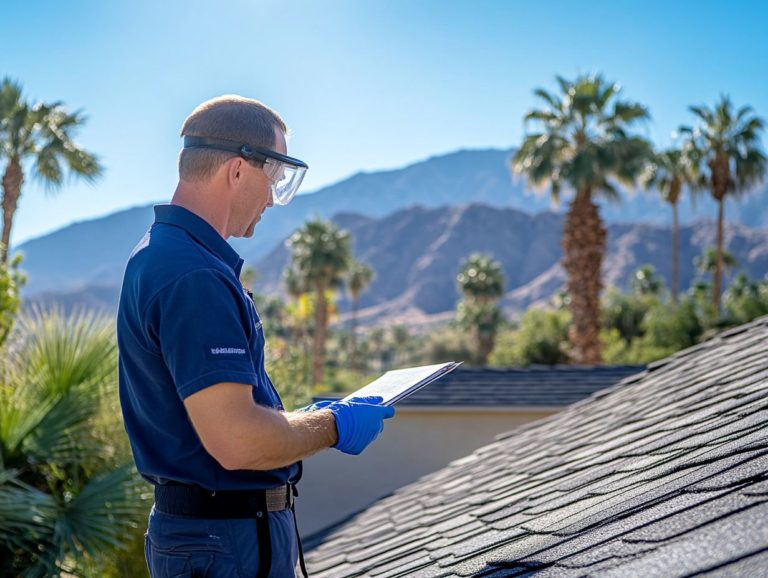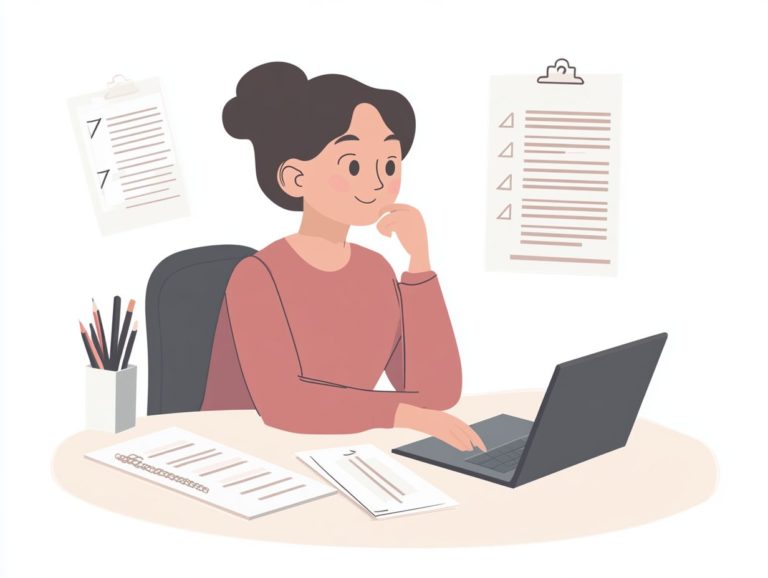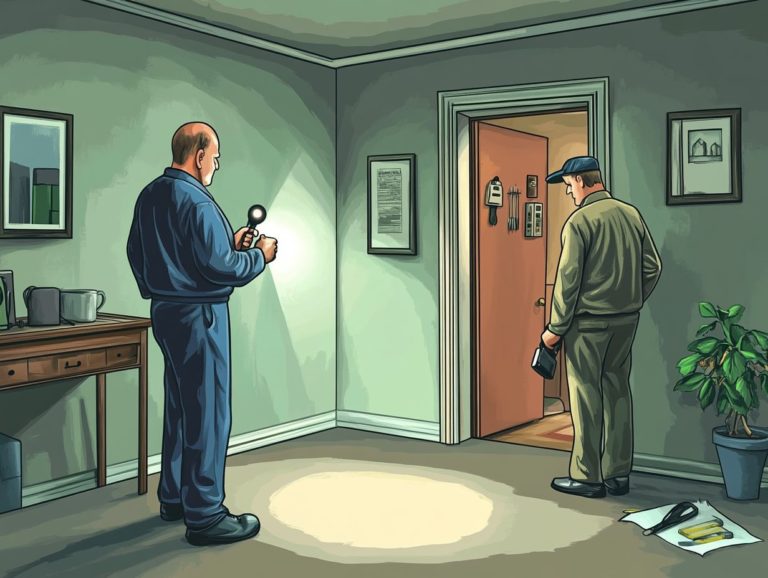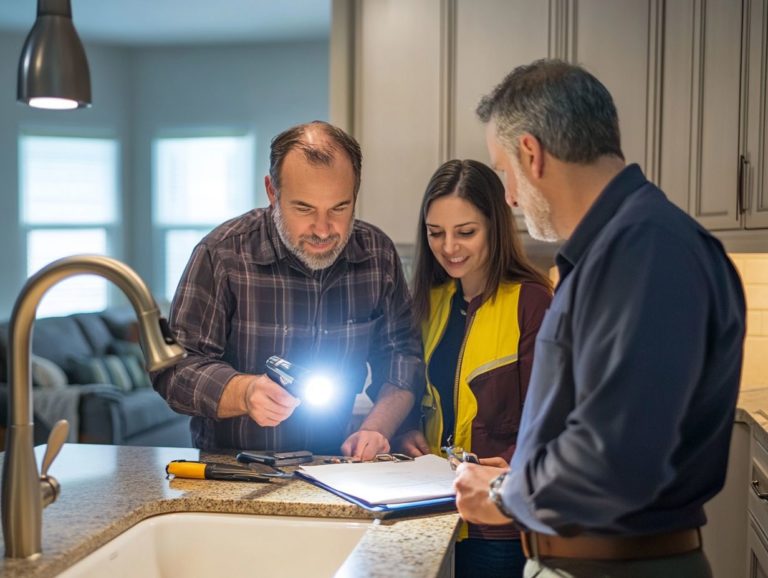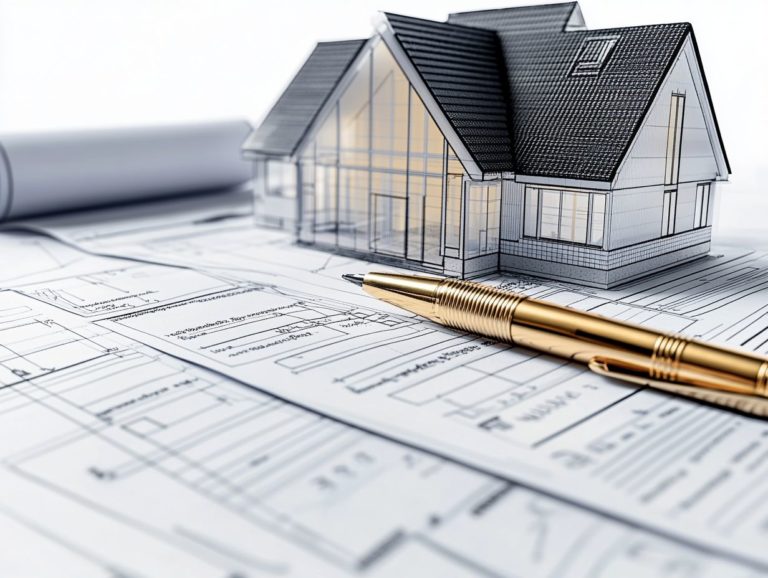Understanding Home Inspection Protocols
Purchasing a home is one of life s biggest investments, making a detailed home inspection not just important, but essential!
This guide will delve into the purpose and importance of home inspections, as well as the optimal moments for scheduling one. You ll discover what to anticipate during the inspection process, the common issues that may come to light, and how to select the right inspector for your needs.
You will also find helpful tips on preparing for the inspection and interpreting the results effectively. Get ready to boost your home-buying journey!
Contents
- Key Takeaways:
- What is a Home Inspection?
- When Should a Home Inspection be Conducted?
- What to Expect During a Home Inspection?
- Common Issues Found During Home Inspections
- Choosing a Home Inspector
- Preparing for a Home Inspection
- Interpreting the Inspection Report
- Frequently Asked Questions
- What is the purpose of understanding home inspection protocols?
- What are some common home inspection protocols?
- Why is it important to follow home inspection protocols?
- Who follows home inspection protocols?
- What happens if a home inspection protocol is not followed?
- How can I ensure that home inspection protocols are being followed?
Key Takeaways:
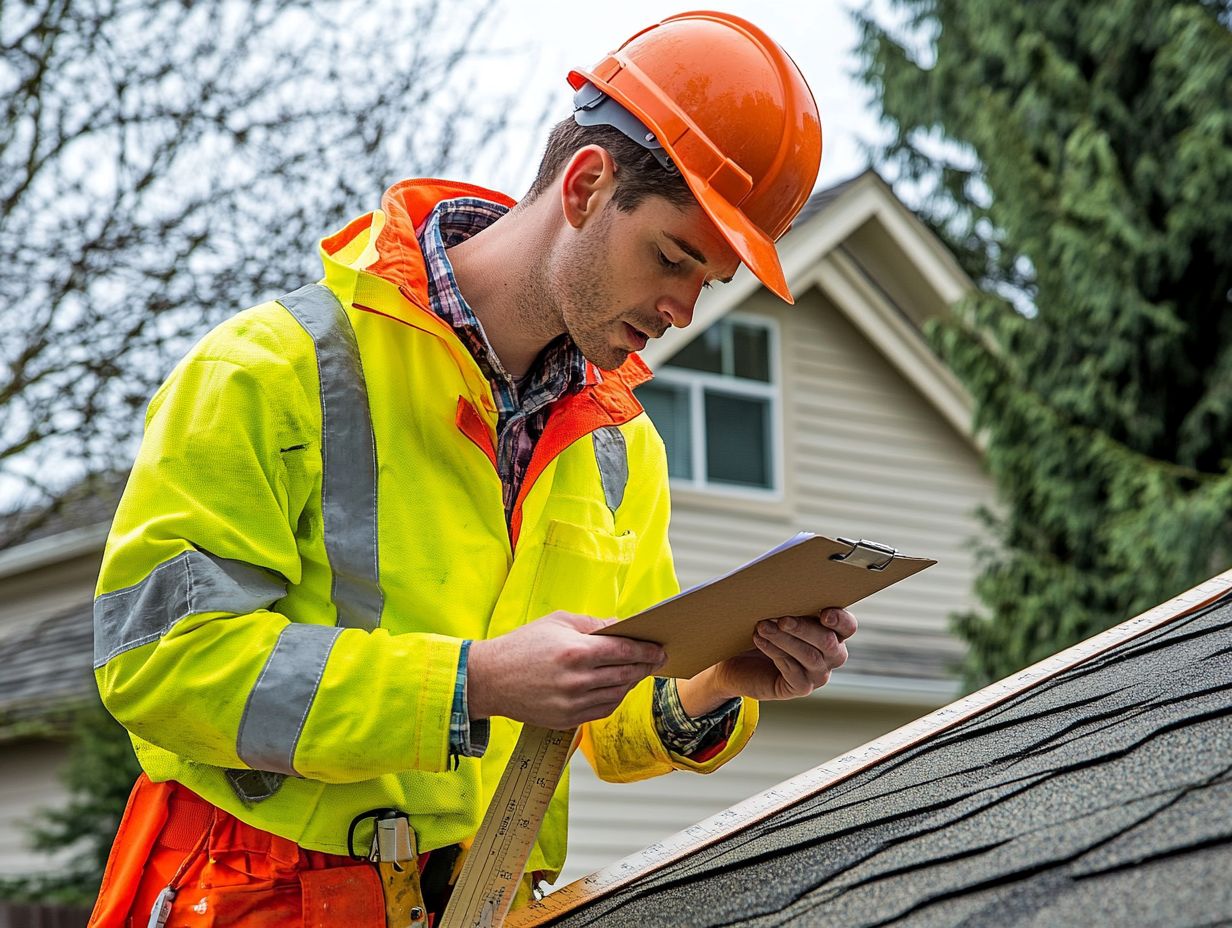
What is a Home Inspection?
A home inspection is an essential milestone in your home buying journey, offering a thorough assessment of a property’s condition that gives you the power to make informed decisions.
Typically conducted by certified inspectors trained to assess homes, this process meticulously evaluates various aspects of the home, including its structural integrity, electrical systems, plumbing, and overall safety concerns. For more detailed insights, consider understanding home inspection reports.
The inspection ends with a detailed report of the findings, which can significantly influence your negotiation strategy with sellers and impact both the property’s value and the home appraisal.
Purpose and Importance
The purpose of a home inspection is to equip you, the home buyer, with a thorough understanding of the property’s condition, pinpointing any potential safety concerns or significant repairs needed before you make that purchase.
This vital step gives you knowledge. It also significantly reduces the risk of investing in a property that could be hiding costly issues. A detailed inspection can uncover problems like structural defects, roofing concerns, or plumbing inefficiencies each of which could lead to hefty repair bills later on.
With this critical information in hand, you can approach negotiations with the seller more confidently, potentially securing a reduction in the asking price or ensuring that specific repairs are completed before you finalize the sale.
Essentially, the inspection acts as your safeguard, confirming that your investment is sound and that there are no unwelcome surprises waiting to pounce.
When Should a Home Inspection be Conducted?
Timing is paramount when it comes to home inspections. Ideally, these should take place after you’ve made an offer but before you sign the final purchase agreement.
This allows you to address any issues that arise and negotiate effectively with the seller. By taking this crucial step, you ensure that you’re fully aware of any significant concerns or necessary repairs, protecting your investment and shaping the duration needed for a comprehensive evaluation.
Key Times to Schedule a Home Inspection
Key moments to schedule a home inspection include right after you make an offer and before the final purchase agreement is sealed. This essential step not only protects your investment, but also helps you identify any potential red flags that could influence your decision.
In these early stages, your focus may be on the structural integrity, plumbing conditions, and electrical systems factors that could lead to significant future expenses. A thorough inspection acts as a vital tool, giving you a clear summary that outlines urgent repairs and maintenance needs.
By prioritizing this step, you empower yourself to make informed choices, negotiate necessary repairs, or even rethink the purchase based on what you uncover, ultimately allowing you to avoid unexpected costs down the line.
What to Expect During a Home Inspection?
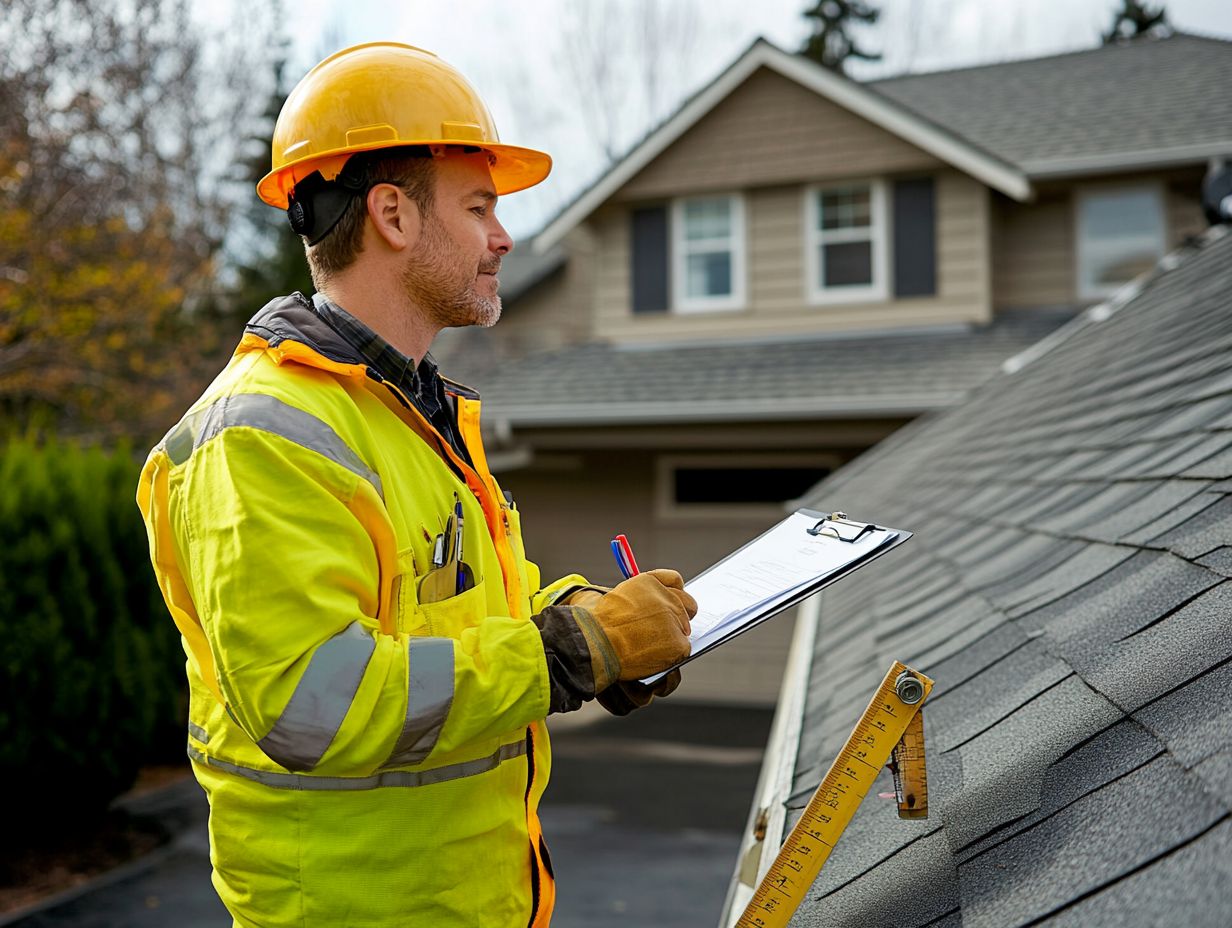
During a home inspection, you can anticipate a detailed check of the property, covering the various structural components and systems, as outlined in the understanding the home inspector’s role.
This process typically involves a detailed inspection checklist, ensuring that no critical aspect goes unnoticed.
As the inspection unfolds, you’ll see a thorough assessment of the exterior condition, HVAC systems, roof, foundation, and other essential areas aimed at identifying potential issues.
All of this information is compiled into an inspection summary, highlighting significant repairs and home defects that require your attention.
Step-by-Step Process
The step-by-step process of a home inspection unfolds in several stages, beginning with an initial walkthrough and progressing to a detailed examination of each component based on established inspection criteria outlined in understanding the home inspection process.
This approach identifies visible defects and hidden issues that might otherwise go unnoticed. Typically, a home inspection takes anywhere from two to four hours, depending on the property’s size and condition.
As you navigate this crucial phase, it’s advantageous to engage the inspector with specific questions about their findings. Inquire about which repairs might be urgent and why certain issues deserve your immediate attention.
By understanding each step in the inspection process, you empower yourself to make informed decisions and prioritize necessary repairs, ultimately safeguarding your investment in a new home.
Common Issues Found During Home Inspections
Home inspections frequently uncover common issues that could greatly impact both the property’s value and your decision-making process as a buyer.
Among the most typical findings are foundation problems, outdated electrical systems, and plumbing deficiencies.
Each of these issues could result in substantial repair costs and safety concerns that you ll need to address before finalizing your purchase.
Examples and Solutions
Common defects discovered during home inspections can include roof leaks and plumbing issues, each presenting its own set of challenges that demand tailored solutions.
Take, for instance, a roof leak; if left unchecked, it can lead to significant water damage, paving the way for mold growth and expensive repairs. It would be wise to request a full roof replacement or repair estimate from a qualified contractor.
Outdated electrical systems that don’t align with modern safety standards pose fire hazards and may require extensive rewiring, which can be a red flag for potential buyers.
Plumbing issues leaks or outdated pipes not only inflate repair costs but also risk diminishing the overall value of your home.
Tackling these issues can open up great negotiation opportunities! By addressing these defects proactively during the buying process, you can offer peace of mind to future homeowners and avoid any unpleasant surprises down the road.
Choosing a Home Inspector
Choosing the right home inspector is essential for a comprehensive and precise evaluation of any property. It could save you from costly mistakes!
As a home buyer, you’ll want to engage professionals who possess the necessary qualifications and credentials, particularly those certified by ASHI. A qualified home inspector will bring a wealth of knowledge about structural integrity and the intricacies of the home inspection process, ensuring that all critical areas like electrical and plumbing systems receive thorough assessment.
Qualifications and Credentials to Look For
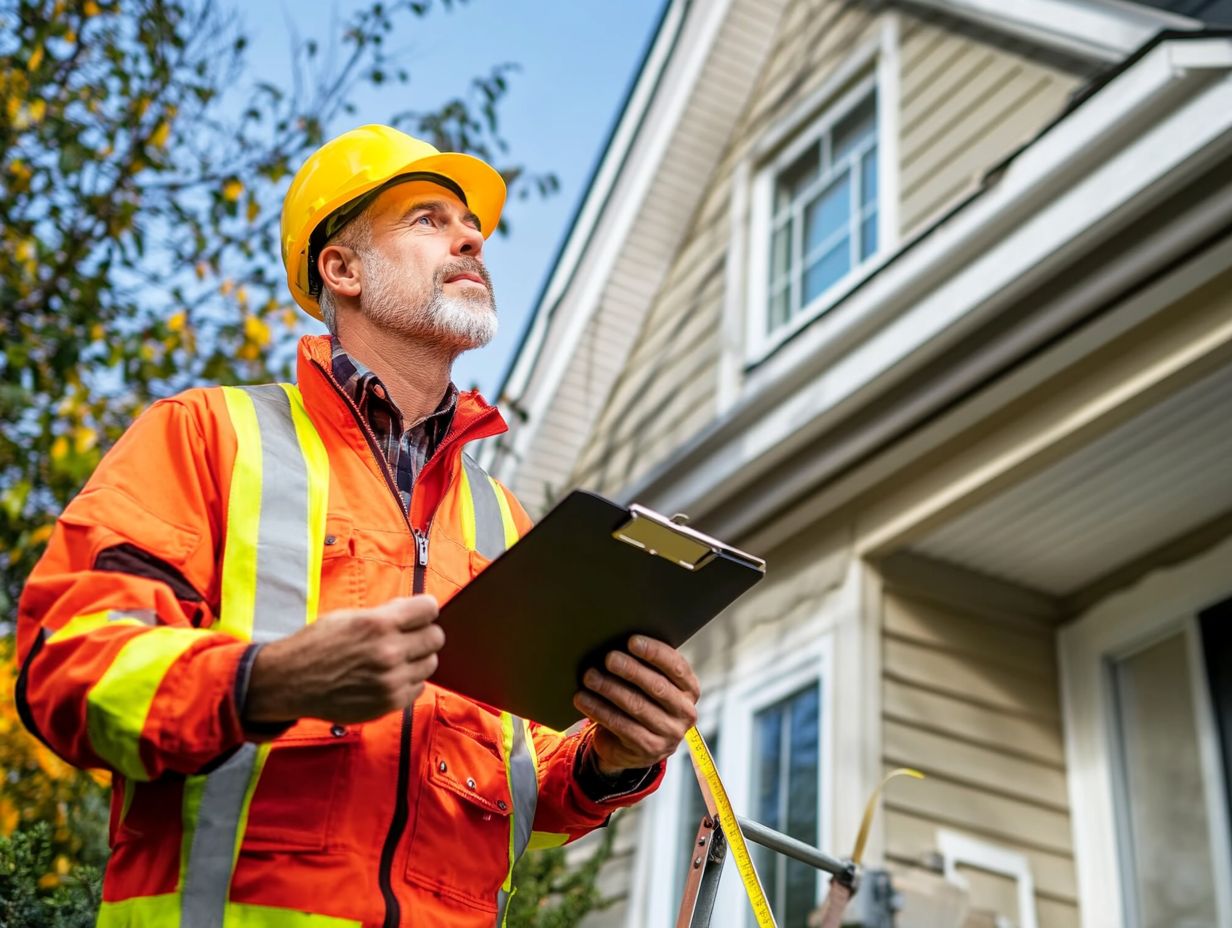
When selecting a home inspector, prioritize professionals with relevant certifications, such as those from ASHI (American Society of Home Inspectors). This ensures you receive a comprehensive evaluation of the property.
These certifications reflect a high level of skill and training, assuring you that the inspector adheres to industry standards and ethical guidelines. A certified inspector brings a deep understanding of building codes, safety regulations, and potential red flags within a property.
This expertise is invaluable, as it will greatly affect the quality of the inspection process, empowering you to make informed decisions.
Credentials from recognized organizations convey trustworthiness and elevate the inspector’s credibility, guaranteeing that you receive a thorough assessment of your prospective home.
Preparing for a Home Inspection
Preparing for a home inspection can significantly elevate the efficiency and effectiveness of the entire process, empowering both buyers and sellers to tackle concerns proactively.
As a home buyer, clearly convey your priorities to your buyer’s agent. As a seller, ensure your property is accessible and in pristine condition for a seamless inspection experience.
Tips for a Smooth Inspection Process
To ensure a seamless home inspection process, take proactive steps in preparation, emphasizing transparency and communication by understanding the basics of home inspections.
- For sellers, provide easy access to all areas of the home, including the attic, basement, and closets, allowing inspectors to work without obstacles.
- A clean and tidy environment impresses and allows for thorough assessments.
As a buyer, communicate any specific concerns you have before the inspection; this gives sellers the chance to address potential issues proactively. Both parties should be well-informed about necessary disclosures, such as past repairs or neighborhood concerns, to foster trust and streamline the entire process.
Interpreting the Inspection Report
Interpreting the inspection report is crucial for you as a home buyer. The inspection report lists findings and recommendations from the inspector, emphasizing necessary repairs and potential safety concerns that require your attention.
Make sure to pay close attention to the inspection limitations noted in the report, as these can significantly influence your understanding of the home’s overall condition.
This information will guide your decisions regarding a home warranty, ensuring you make informed choices moving forward.
Understanding the Findings and Recommendations
Understanding the findings and recommendations in the inspection report is crucial for you as a homebuyer. It allows you to identify significant defects and estimate potential repair costs.
By thoroughly examining the report, you gain valuable insights into the property’s current condition insights that will directly influence your negotiation strategy.
Recognizing key findings such as structural issues, outdated electrical systems, or plumbing concerns enables you to prioritize areas that need immediate attention.
Addressing these issues during negotiations not only empowers you to secure a fair price but also shapes your overall decision-making process.
An informed buyer like you is far more likely to make confident choices, ensuring you don t overlook critical repairs that could lead to substantial expenses down the line.
Frequently Asked Questions
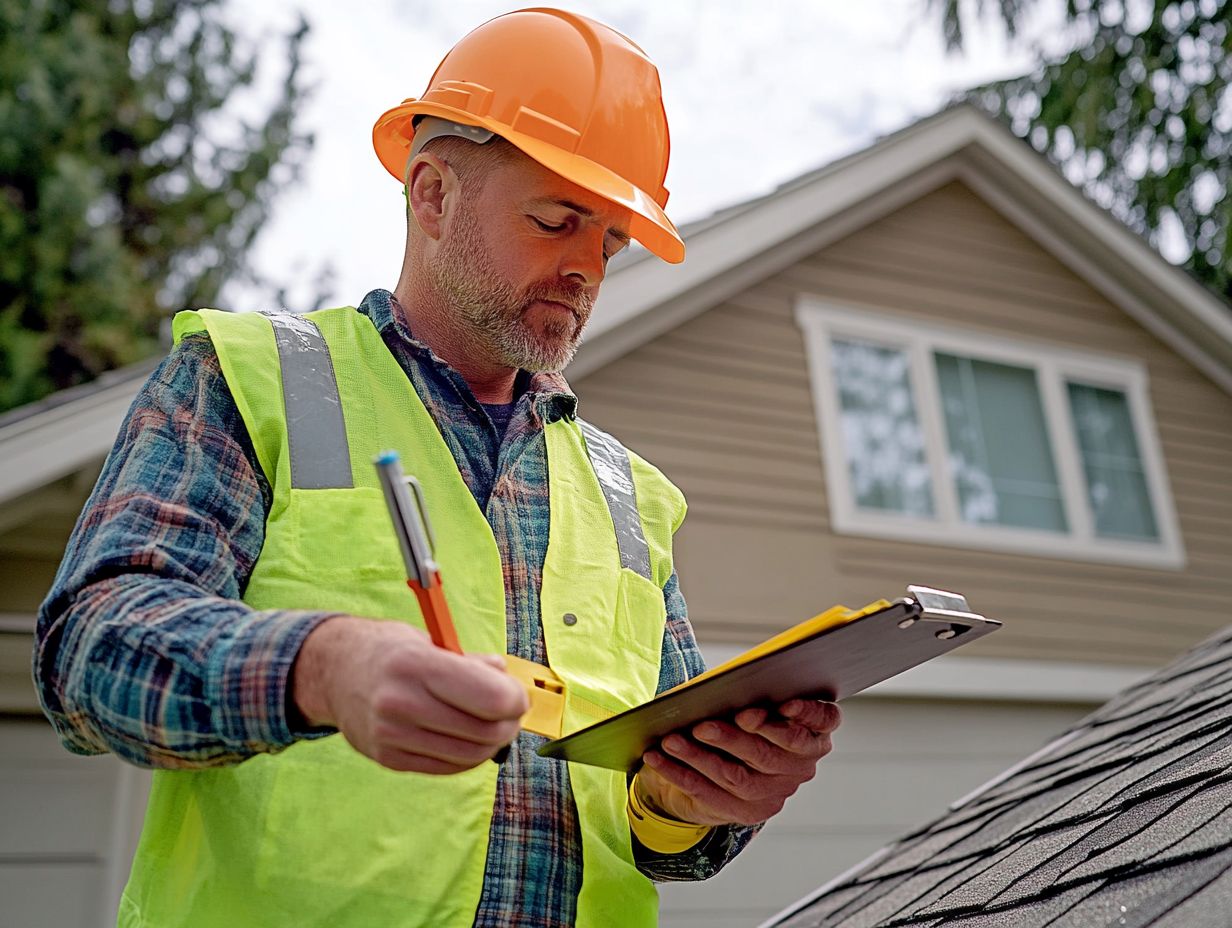
What is the purpose of understanding home inspection protocols?
Understanding home inspection protocols is vital. It prepares you for the inspection and helps you make sense of the results.
What are some common home inspection protocols?
Common home inspection protocols include checking both the exterior and interior of the home. Inspectors also test electrical and plumbing systems, as well as evaluate the HVAC system and understanding home inspection standards and practices to assess structural integrity.
Why is it important to follow home inspection protocols?
Following home inspection protocols leads to a thorough evaluation of the home. Understanding home inspection standards helps identify potential issues or hazards, offering a detailed report for homeowners and buyers.
Who follows home inspection protocols?
Home inspectors and licensed contractors follow home inspection protocols to ensure thorough evaluations. Understanding the process of home inspections is essential, as they need to be trained and knowledgeable to provide accurate and reliable inspections.
What happens if a home inspection protocol is not followed?
If a home inspection protocol is ignored, it may lead to an incomplete or inaccurate inspection. This can cause potential issues or hazards to be overlooked, resulting in problems for the homeowner or buyer later on. To avoid this, it’s crucial to have a clear understanding of the home inspection process.
How can I ensure that home inspection protocols are being followed?
Hire a reputable and licensed home inspector to ensure protocols are followed. To make an informed choice, ask for references and check their qualifications. Additionally, consider reading about what to know about home inspection policies and request a sample report to understand their inspection process.

